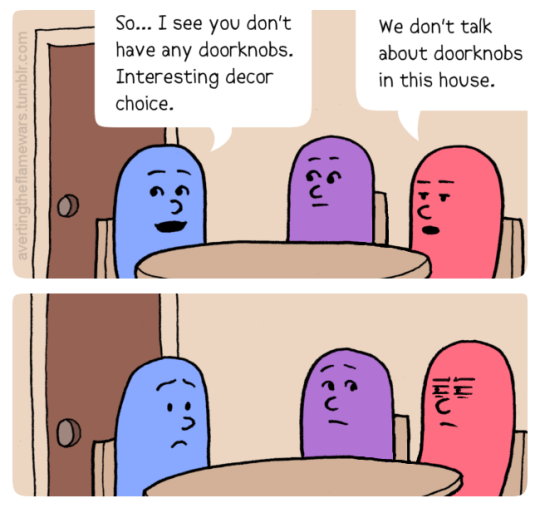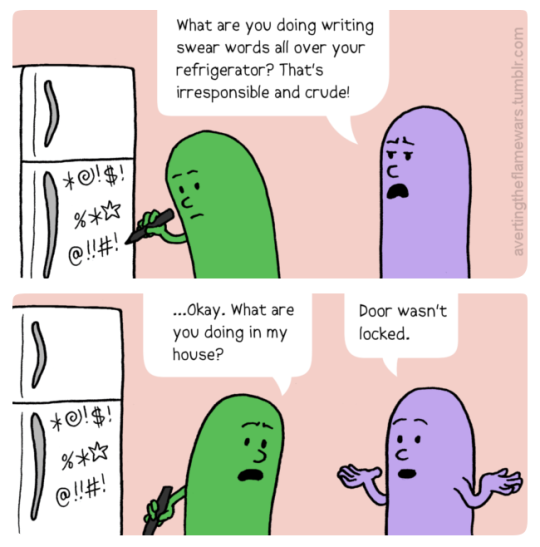#internet spaces
The internet comes with its own concept of “space.” It’s a newer invention than physical space, and a little trickier to keep track of.
When people talk about a “space” online, they can mean…
- a forum or forum discussion.
- the comment section on a blog, video, or anything else that comes with a comment section.
- a comment chain.
- a website.
- a social media account. This space can “contain” anything that appears on the page, or any messages people send to the account.
- a community of social media accounts.
- a fandom or part of a fandom.
- a hashtag or tag page.
- a listing of retweets, reblogs, or shares on a post. This space can “contain” the comments people have made on the post along its journey.
That’s probably not a complete listing of types of online spaces, but you get the gist.
When someone is in their own “space,” they expect a certain amount of control over what other people say and do there.

…And, when someone is in their own space, they expect a certain amount of leeway to do and say what they like without being interrogated or told off by uninvited guests.

The concept of online space is central to how a lot of web users experience the internet and the people in it, and there’s a lot of disagreement about how it works.
